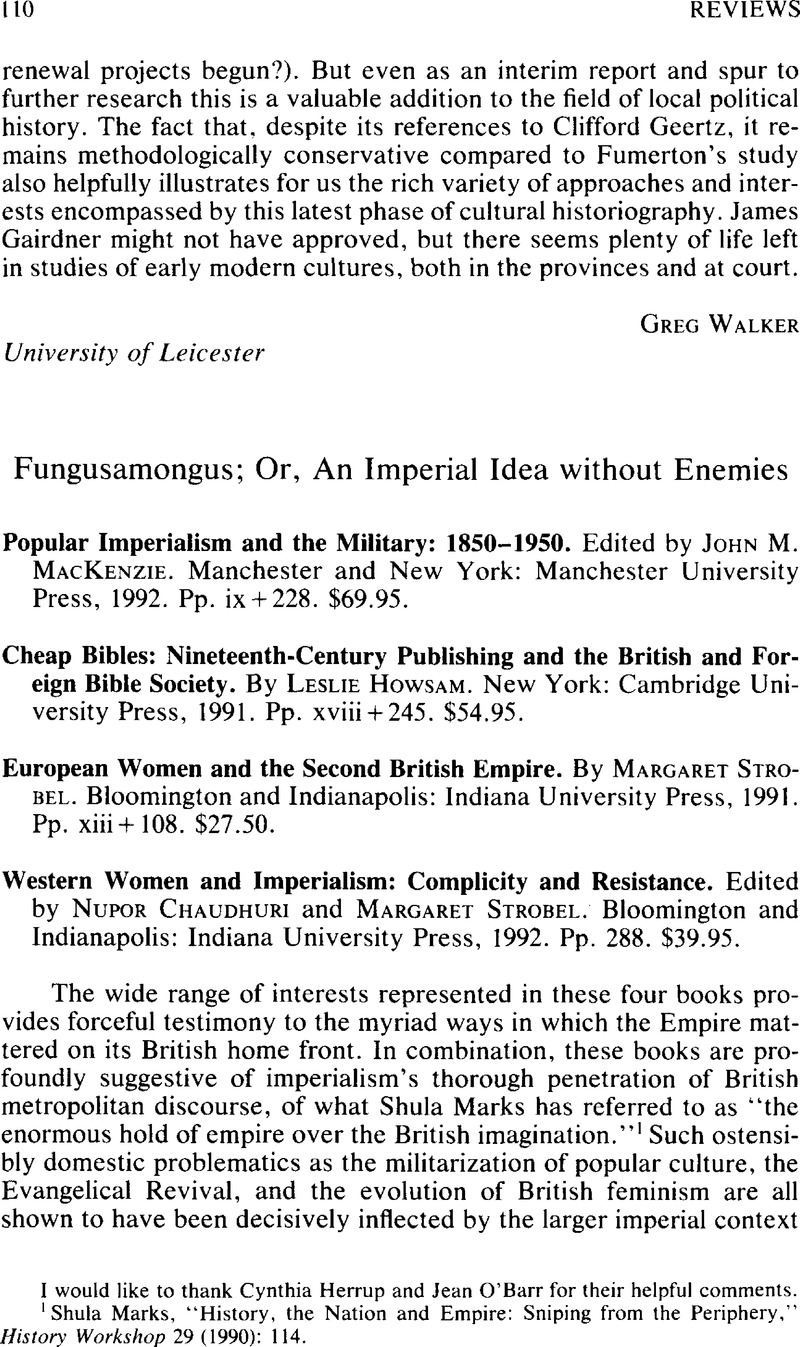No CrossRef data available.
Published online by Cambridge University Press: 10 January 2014

I would like to thank Cynthia Herrup and Jean O'Barr for their helpful comments.
1 Marks, Shula, “History, the Nation and Empire: Sniping from the Periphery,” History Workshop 29 (1990): 114CrossRefGoogle Scholar.
2 Bridenthal, Renate, Koonz, Claudia, and Stuard, Susan, eds., Becoming Visible: Women in European History, 2d ed. (Boston: Houghton Mifflin, 1987)Google Scholar.
3 This phrase is used by John Comaroff to describe missionaries' position in the colonial pecking order; see “Images of Empire: Contests of Conscience: Models of Colonial Domination in South Africa,” American Ethnologist 16, no. 4 (November 1989): 661–85CrossRefGoogle Scholar.
4 For a compelling insistence of the moral imperative of imperial history, see Kitching, Gavin, “Imperialism: The Past in the Present,” Comparative Studies in Societies and History 26, no. 1 (January 1984): 72–82CrossRefGoogle Scholar.
5 Fields, Barbara J., “Ideology and Race in American History,” in Region, Race, and Reconstruction: Essays in Honor of C. Vann Woodward, ed. by Kousser, J. Morgan and McPherson, James M. (New York: Oxford University Press, 1982), p. 160Google Scholar.